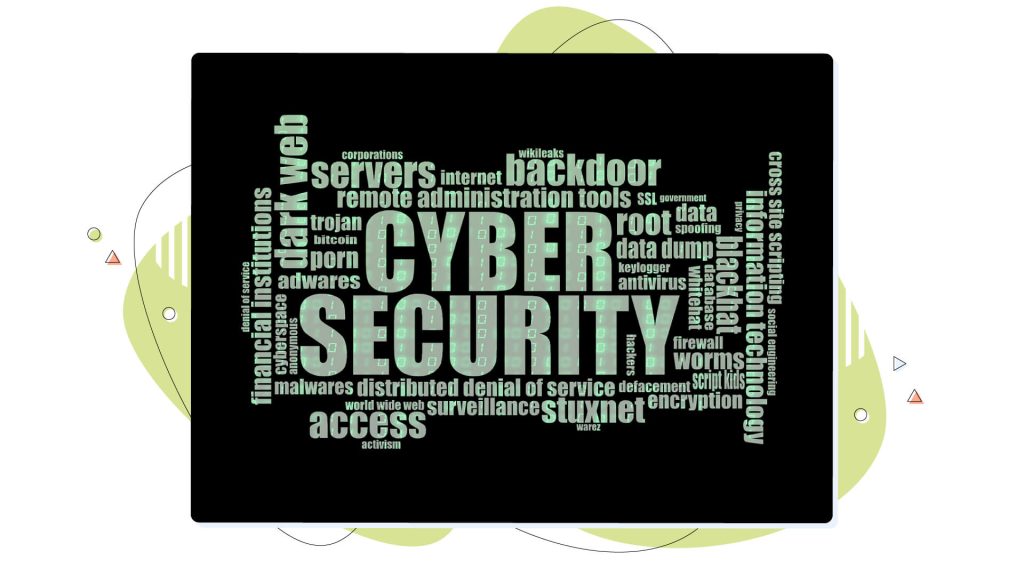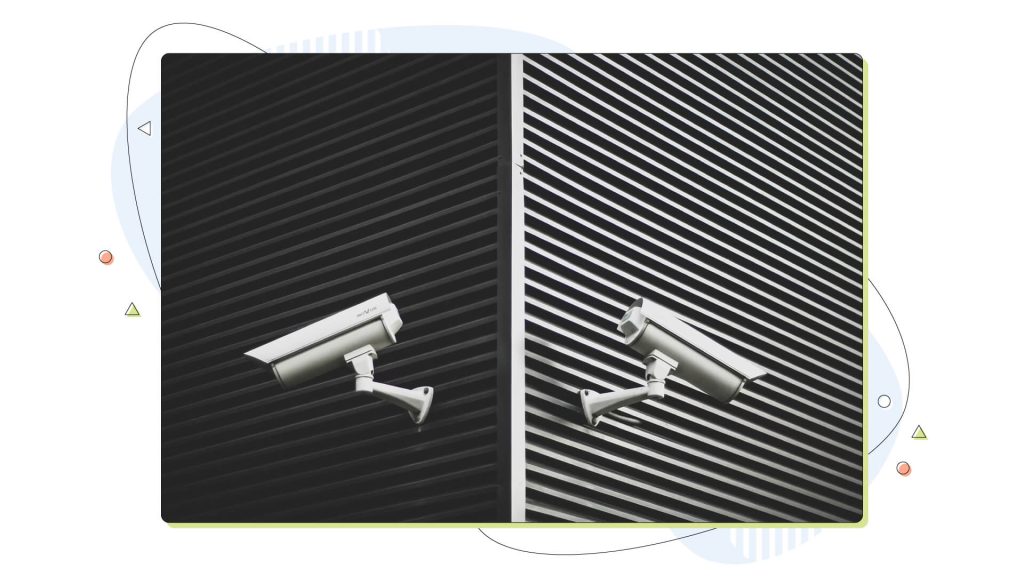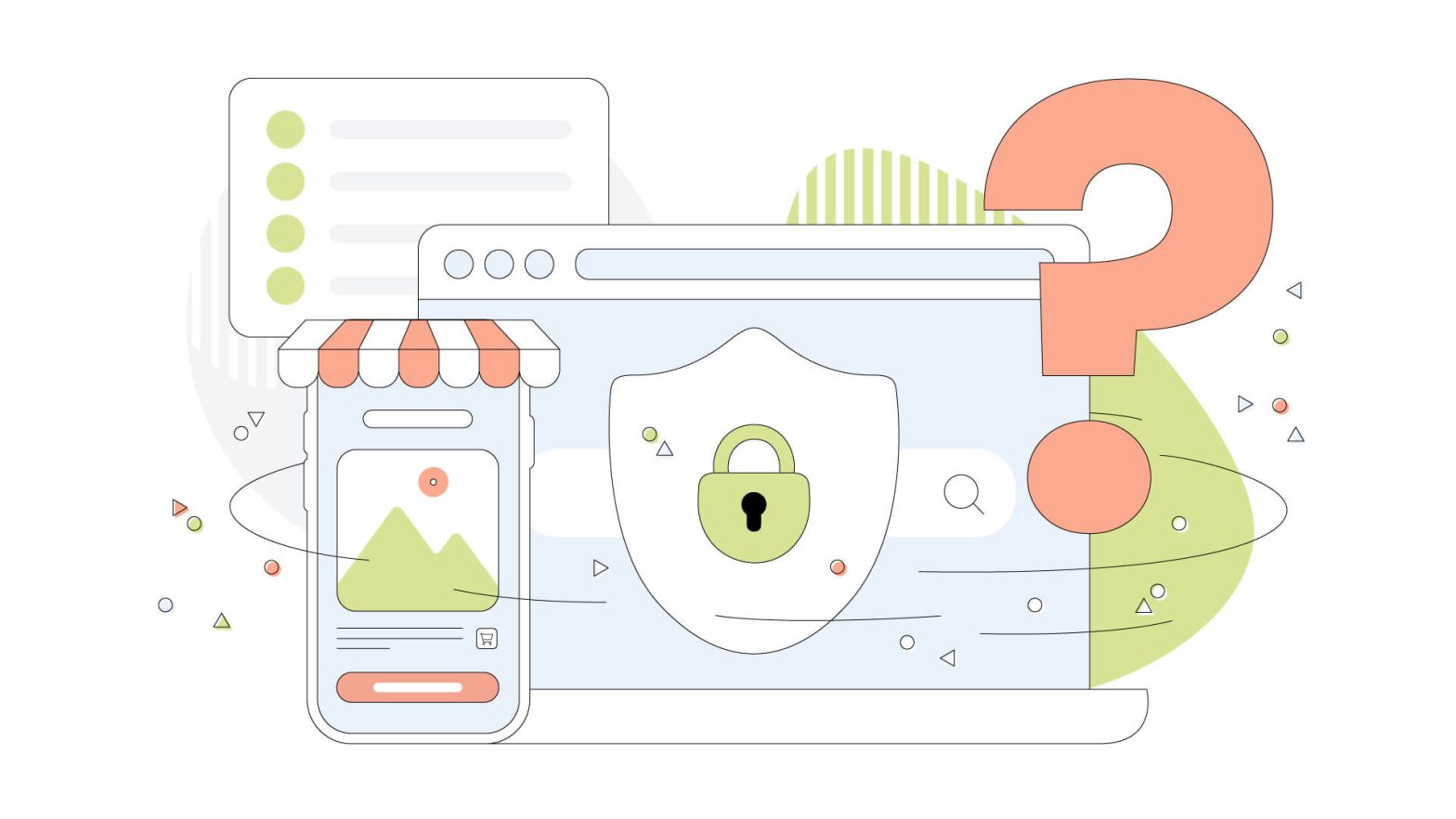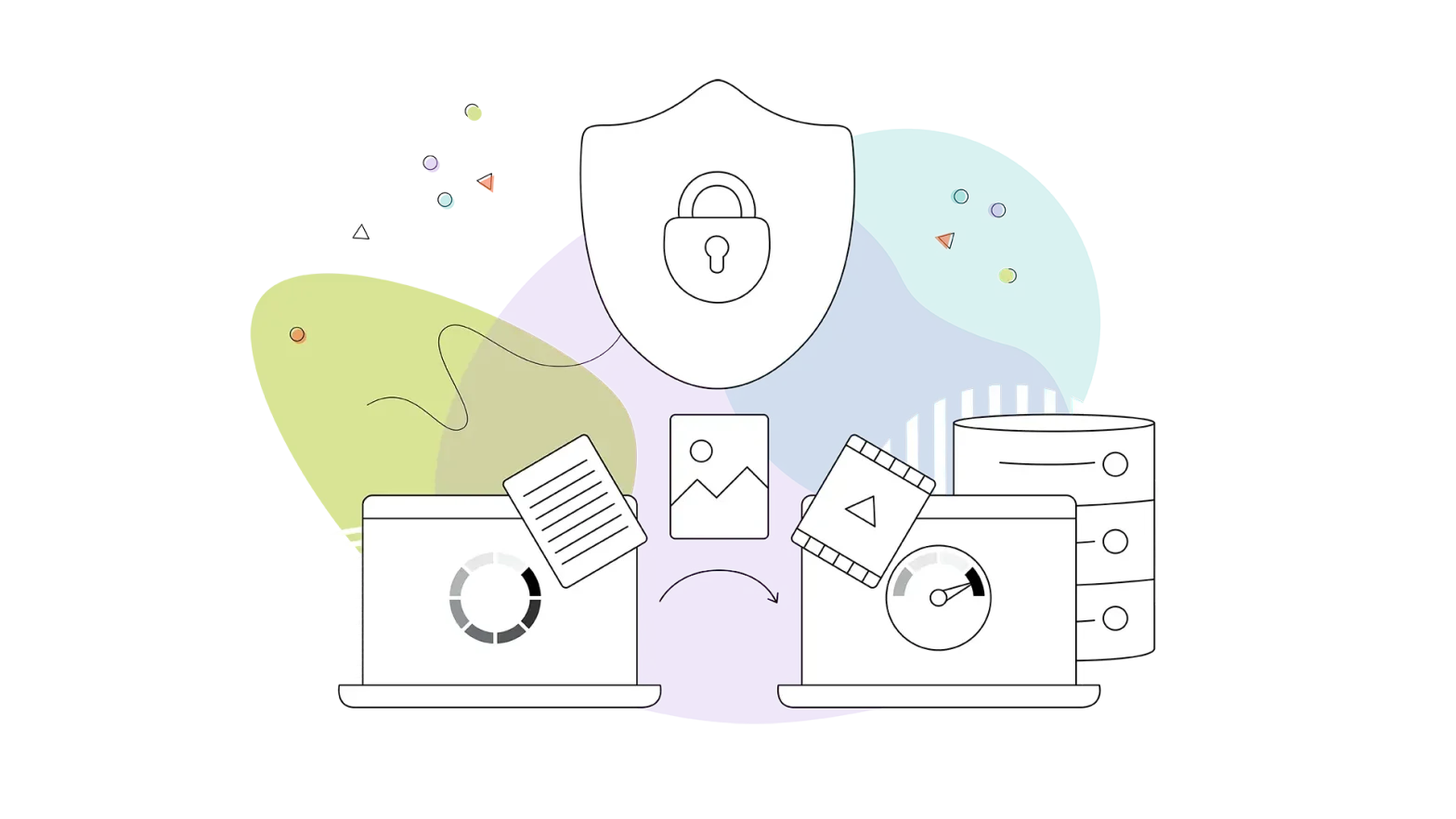Have you ever experienced the sheer terror of misplacing your phone, even for just a moment? Now, magnify that feeling a thousand times and imagine your entire business’s digital infrastructure is at risk.
A report by Cybersecurity Ventures predicts that by 2025, cybercrime will cost the world a staggering $10.5 trillion annually. As more businesses move towards digital operations and the world becomes more interconnected, the virtual space becomes a prime target for malicious cyber activities.
Cybersecurity is a digital shield for the modern world, deciding the fate of businesses in split-second vulnerabilities.
So, dive in with us as we try to decipher the intricate web of cybersecurity, explore its immense impact on businesses, and arm you with the essential tools you need to stay safe.
- Definition and Scope of Cyber Security
- How Cyber Security Impacts Businesses
- Essential Tips to Stay Safe in the Virtual World

Definition and Scope of Cyber Security
Cyber Security ensures the protection of systems, networks, and data from theft, damage, or unauthorized access. It acts as a guardian over our digital profiles, critical infrastructures, and confidential information.
Cyber Security is far more intricate than simply erecting a sturdy fortress of firewalls or ensuring your antivirus software is up to date. It is, in fact, a dynamic and multifaceted field that extends its protective web across a multitude of domains:
- Network security: Think of it as the guardian of your computer network infrastructure, akin to a fortified city gate. Its primary mission is to thwart unauthorized access while constantly monitoring network traffic for any signs of suspicious activities.
- Information security: This facet places a premium on safeguarding information, whether physically or electronically, from falling into the wrong hands. It involves stringent measures to prevent unauthorized access, use, alteration, or destruction of sensitive data.
- Application security: Given that the tools and services we rely on daily can inadvertently provide an entry point for malicious actors, application security is paramount. It revolves around ensuring that software and applications are not just created but also maintained securely, leaving no vulnerabilities exposed.
- End-user education: This dimension underscores the importance of educating end-users about best security practices. They are, in essence, the first line of defence against potential threats. Equipping them with knowledge is pivotal in fortifying the overall cybersecurity posture.
- Disaster recovery and business continuity: These facets ensure businesses can swiftly rebound from cyber incidents. Their goal is to minimize downtime and ensure that essential services remain available, even in disruptions.
- Operational security: Operating in the shadows, this aspect is all about the processes and procedures that dictate who gains access to specific assets and when. It’s the governance of daily operations, ensuring that every access is meticulously logged, monitored, and justified.
Jesse Galanis, Content Manager at Tech Lockdown, adds, “Every click, every download, every shared document – they’re all potential risks without cyber security. Understanding its breadth and depth means realizing that it’s not a mere technicality but a necessity, the foundation of trust in the digital age.”

How Cyber Security Impacts Businesses
Imagine your business being a city. Every department is a neighbourhood, every employee a citizen, and your data – is the lifeblood that keeps the town thriving.
Now, picture cyber threats like villains, disturbing peace and generating tangible consequences that reverberate throughout the urban landscape. Here’s how they do it.
1. Financial Impact: A Drain on the Purse
Consider cyber-attacks as silent pickpockets, only far more dangerous. Falling victim to a cyber-attack can punch a sizable hole in a company’s budget. But it’s not just about losing money to ransoms or theft. There’s a whole spectrum of costs tied to cyber threats.
Volodymyr Shchegel, VP of Engineering at Clario, further emphasizes the financial impact of cyber security breaches on businesses. “Picture a business shelling out hefty sums for data recovery, system repairs, and even legal fees if customer information is compromised.
There’s more. The aftermath of a cyber breach often sees companies investing in public relations efforts to salvage their reputation. The cost of cyber security neglect? Immense!”
2. Operational Impact: The Gears Grind to a Halt
Imagine a well-oiled machine suddenly stuttering to a stop. That’s precisely what a cyber-attack can do to a business’s operations. Cyber threats can put day-to-day activities at a standstill, from rendering vital software useless to causing catastrophic data loss.
What happens if a business cannot complete client projects on time or process crucial transactions? Chaos. Moreover, if a supplier’s systems are compromised, it can cause a domino effect, disrupting your business process, even if you’re not directly hit.
3. Legal Consequences: From the Boardroom to the Courtroom
In our digital society, businesses are the custodians of customer data, expected to protect it like a mother would her child. When a cyber breach occurs, it’s like letting that child wander into a dangerous alleyway.
Jack Underwood, CEO and co-founder at Circuit says, “Regulatory bodies take such lapses seriously, and the penalties can be severe. Businesses could face lawsuits, hefty fines, and even sanctions if they don’t comply with data protection laws. In essence, it’s not just about keeping the business safe; it’s also about staying on the right side of the law.”
4. Reputational Impact: The Invisible Stain
Trust is fragile, hard to build, and easy to break. A business’s reputation is built on this trust, and nothing shatters it quite like a cyber-attack.
Once customer confidence takes a hit, it’s a long, arduous road to recovery. It’s not just about losing existing customers; the bad press can deter potential clients, partners, and even employees.

What Are the Major Cyber Threats?
- Phishing attacks: Think of phishing as someone pretending to be your best friend to gain access to your deepest secrets. Cybercriminals send seemingly harmless emails or messages, impersonating trusted entities like your bank or favourite shopping site.
They invite you to click a link or download an attachment, and BAM! They now have access to your sensitive information. To protect yourself against phishing attacks, always verify the source before clicking on anything suspicious.
- Ransomware attacks: This is similar to a burglar sneaking into your home, locking all your precious items in a box, and demanding a hefty ransom for the key. Similarly, ransomware encrypts your valuable data, making it inaccessible unless you pay a ransom, often in untraceable cryptocurrency. Regular data backups and robust security software are your best defence against this threat.
- DDoS attacks: Distributed Denial of Service (DDoS) attacks overwhelm your network with excessive data, causing it to slow down or crash completely. The traffic might be fake, but the inconvenience caused is real. Ensuring you have a robust network security system can help prevent such attacks.
- Insider threats: What if the threat is not an outsider but someone within your ranks? These are termed insider threats. Whether due to malicious intent or innocent mistakes, insider threats can cause significant damage. Continuous staff training and strict access controls can help mitigate these threats.

Essential Tips to Stay Safe in the Virtual World
1. Regular Education and Training
Equip your team with the best defence weapon – knowledge. Regularly updating employees about the latest cyber threats and how to spot them can be your first line of defence against digital incursions.
Regular drills help cement this learning and ensure your team responds effectively under threat.
2. Backup and Recovery Systems
Regular backups are like digital time capsules, preserving your valuable data. Storing copies of your data in a secure, separate location ensures business continuity even if the worst happens.
Services like our own Protection Power or the life-saving Automated Website Backup are top options to further protect your thriving business from prying eyes.
If data is lost or compromised, recovery systems help to restore it, minimizing downtime and financial damage.
3. Regular Updates and Patches
Regular software updates and patches are like adding reinforcements to your fortress walls. One way to do this effectively is by choosing a managed hosting service, like Managed WordPress, where all the monotonous tasks like these are handled by a team of dedicated professionals.
Cyber threats evolve quickly, and updates often include fixes to newly discovered vulnerabilities. Keep all systems up-to-date to ensure you’re protected against the latest threats.
4. Implementing Strict Access Controls
Like every bee doesn’t have access to the queen’s chamber in a beehive, not everyone in your organization needs access to all data and resources. Adopting a policy where access is granted judiciously safeguards your critical data from falling into the wrong hands – just like the royal guards protecting the queen bee!
This golden principle is called ‘least privilege,’ providing the keys to your virtual kingdom only to those who genuinely require them.
5. Network Monitoring
Network monitoring continuously sweeps the depths of your network activities, helping to identify suspicious patterns or actions. Thus, ensure your team can react swiftly and effectively to prevent cyber threats.
Interestingly, web scraping is a technique that isn’t often associated with cybersecurity. Still, it can be essential for tracking fraudulent use of a company’s name or brand or for gathering intelligence both before and after cyberattacks.
Leveraging unconventional yet effective methods can significantly augment your cybersecurity strategy, adding another layer to your digital shield.
Conclusion
Cybersecurity isn’t a luxury you can opt for, like a first-class seat on a flight; it’s the parachute you need for a safe landing. It’s not a one-and-done strategy but an ongoing commitment, like a gardener tending to his plants to ensure healthy growth season after season.
With all that in mind, we can safely say that caring about cybersecurity is a proactive measure against all kinds of threats in the online world.
More than anything, cybersecurity isn’t just about safeguarding a series of ones and zeros; it’s about creating a secure future for your business, its dreams, and its ambitions.
Is your business (really) safe? One effective method to enhance your cybersecurity is to opt for a trustworthy service like Protection Power. For a monthly fee of less than $10, you can obtain the assurance and serenity your business requires. Take a look at Protection Power now!




